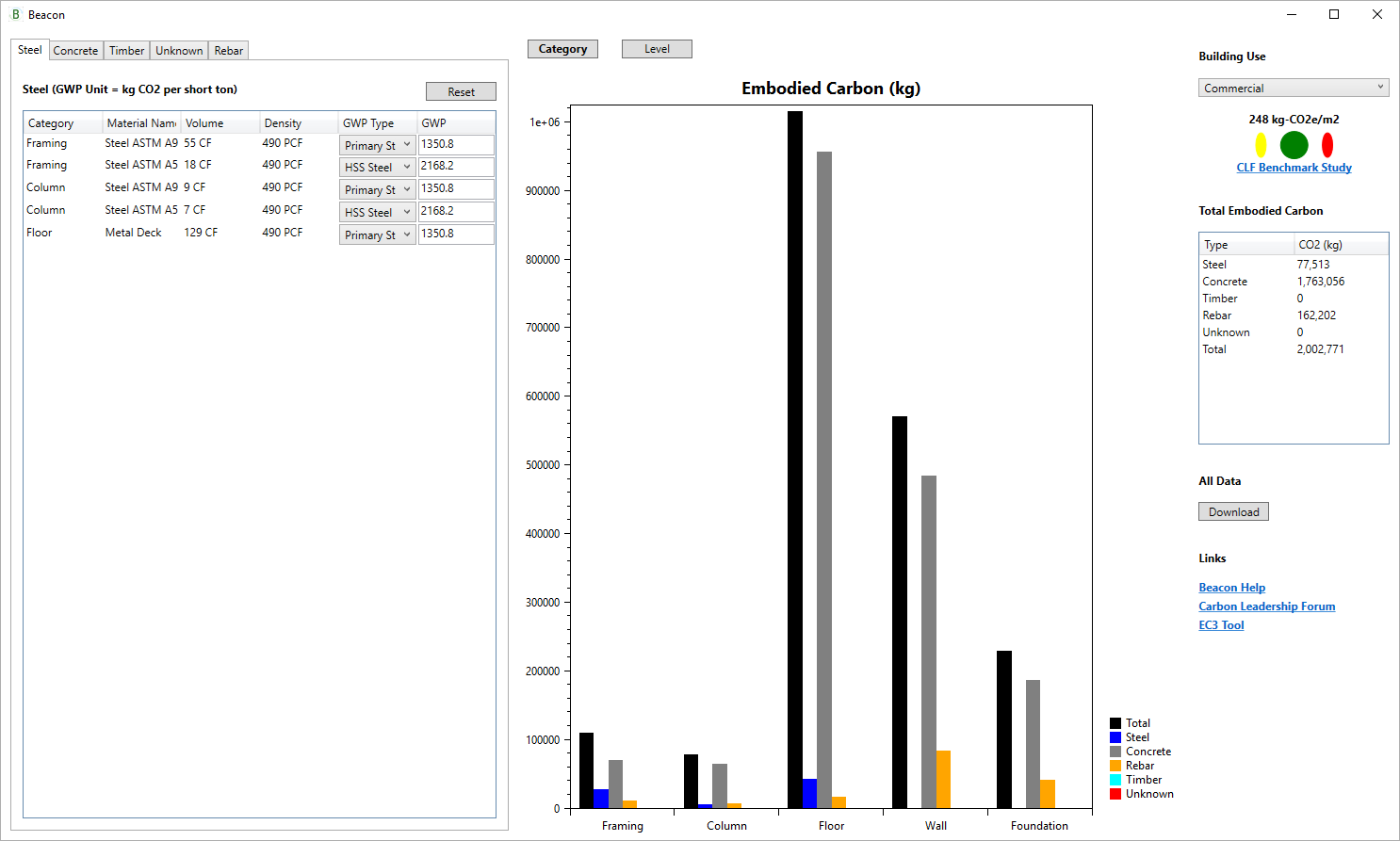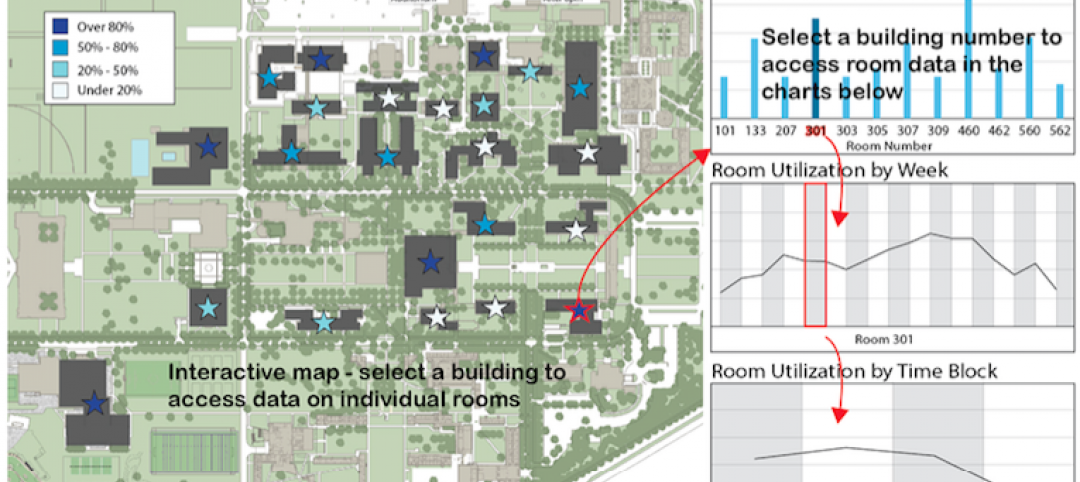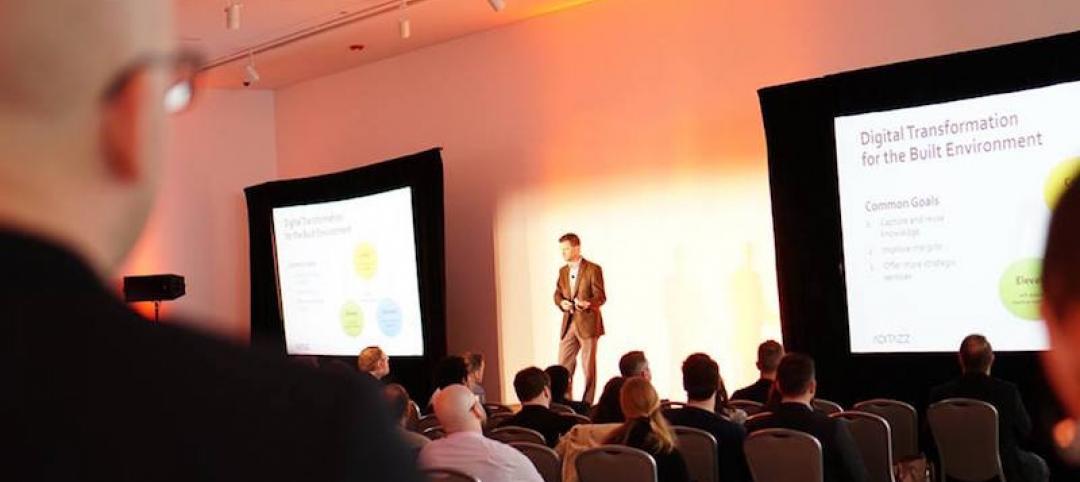Engineering giant Thornton Tomasetti has launched Beacon, an open-source embodied carbon measurement tool poised to change the way structural engineers understand and manage embodied carbon optimization. The tool gives users the ability to measure embodied carbon, allowing for more informed decisions throughout the design process.
Beacon is being introduced after an intensive, three-year research and development process led by Thornton Tomasetti’s CORE studio, a firm-wide virtual incubator focused on innovation through computational modeling and research.
The tool is an Autodesk Revit plugin that generates a comprehensive data visualization of a project’s embodied carbon. Beacon provides data in a manner similar to the engineer’s thought process, providing a clear visualization of a project’s embodied carbon quantities by material type, building element and floor levels, allowing engineers to know exactly where embodied carbon can be minimized for optimization.
It also grades the model’s embodied carbon levels against the Carbon Leadership Forum’s database of models by building type using a red, yellow, and green rating system.
embodied carbon reseach
Beacon’s launch follows Thornton Tomasetti’s November 2019 release of results from its multi-year, project-based embodied carbon measurement study. The study focused on identifying the type of structures, materials and components with the highest carbon emissions.
“We decided to make Beacon an open-source and easy-to-use tool, so it can be shared at a global scale,” said Robert Otani, Principal and Chief Technology Officer at Thornton Tomasetti. “We hope this unique and comprehensive tool will push the industry forward into developing innovative strategies that result in more sustainable and efficient structures.”
“The built environment is estimated to be responsible for about 40% of global greenhouse gas emissions when building materials are factored in,” said Amy Seif Hattan, Corporate Responsibility Officer at Thornton Tomasetti. “It is up to us to help effect change. Beacon will help structural engineers address embodied carbon in new construction. It will also be extremely valuable to measure progress toward the Carbon Leadership Forum’s Structural Engineers 2050 Challenge’s primary goal of zero carbon buildings by 2050.”
Hattan added that this challenge was recently endorsed by the Structural Engineering Institute Board of Governors, showing strong industry support for the initiative.
Beacon is available for download at: https://core-studio.gitbook.io/beacon.
Related Stories
AEC Tech | Aug 24, 2017
Big Data helps space optimization, but barriers remain
Space optimization is a big issue on many university campuses, as schools face increasing financial constraints, writes Hanbury’s Jimmy Stevens.
Lighting | Aug 2, 2017
Dynamic white lighting mimics daylighting
By varying an LED luminaire’s color temperature, it is possible to mimic daylighting, to some extent, and the natural circadian rhythms that accompany it, writes DLR Group’s Sean Avery.
Office Buildings | Jul 20, 2017
SGA uses virtual design and construction technology to redevelop N.Y. building into modern offices
287 Park Avenue South is a nine-story Classical Revival building previously known as the United Charities Building.
Accelerate Live! | Jul 6, 2017
Watch all 20 Accelerate Live! talks on demand
BD+C’s inaugural AEC innovation conference, Accelerate Live! (May 11, Chicago), featured talks on machine learning, AI, gaming in construction, maker culture, and health-generating buildings.
| Jun 13, 2017
Accelerate Live! talk: Is the road to the future the path of least resistance? Sasha Reed, Bluebeam (sponsored)
Bluebeam’s Sasha Reed discusses why AEC leaders should give their teams permission to responsibly break things and create ecosystems of people, process, and technology.
| Jun 13, 2017
Accelerate Live! talk: 3D laser scanning for the project lifecycle, FARO Technologies (sponsored)
Brent Slawnikowski of FARO Technologies and Jennifer Suerth of Pepper Construction discuss how implementation of laser scanning has helped Pepper become more successful in the completion of their projects.
| Jun 13, 2017
Accelerate Live! talk: Incubating innovation through R&D and product development, Jonatan Schumacher, Thornton Tomasetti
Thornton Tomasetti’s Jonatan Schumacher presents the firm’s business model for developing, incubating, and delivering cutting-edge tools and solutions for the firm, and the greater AEC market.
| Jun 13, 2017
Accelerate Live! talk: The future of computational design, Ben Juckes, Yazdani Studio of CannonDesign
Yazdani’s Ben Juckes discusses the firm’s tech-centric culture, where scripting has become an every-project occurrence and each designer regularly works with computational tools as part of their basic toolset.
| Jun 13, 2017
Accelerate Live! talk: A case for Big Data in construction, Graham Cranston, Simpson Gumpertz & Heger
Graham Cranston shares SGH’s efforts to take hold of its project data using mathematical optimization techniques and information-rich interactive visual graphics.
| Jun 13, 2017
Accelerate Live! talk: Scaling change in a changing industry, Chris Mayer, Suffolk Construction
Suffolk’s CIO Chris Mayer talks about the firm’s framework for vetting and implementing new technologies and processes.











